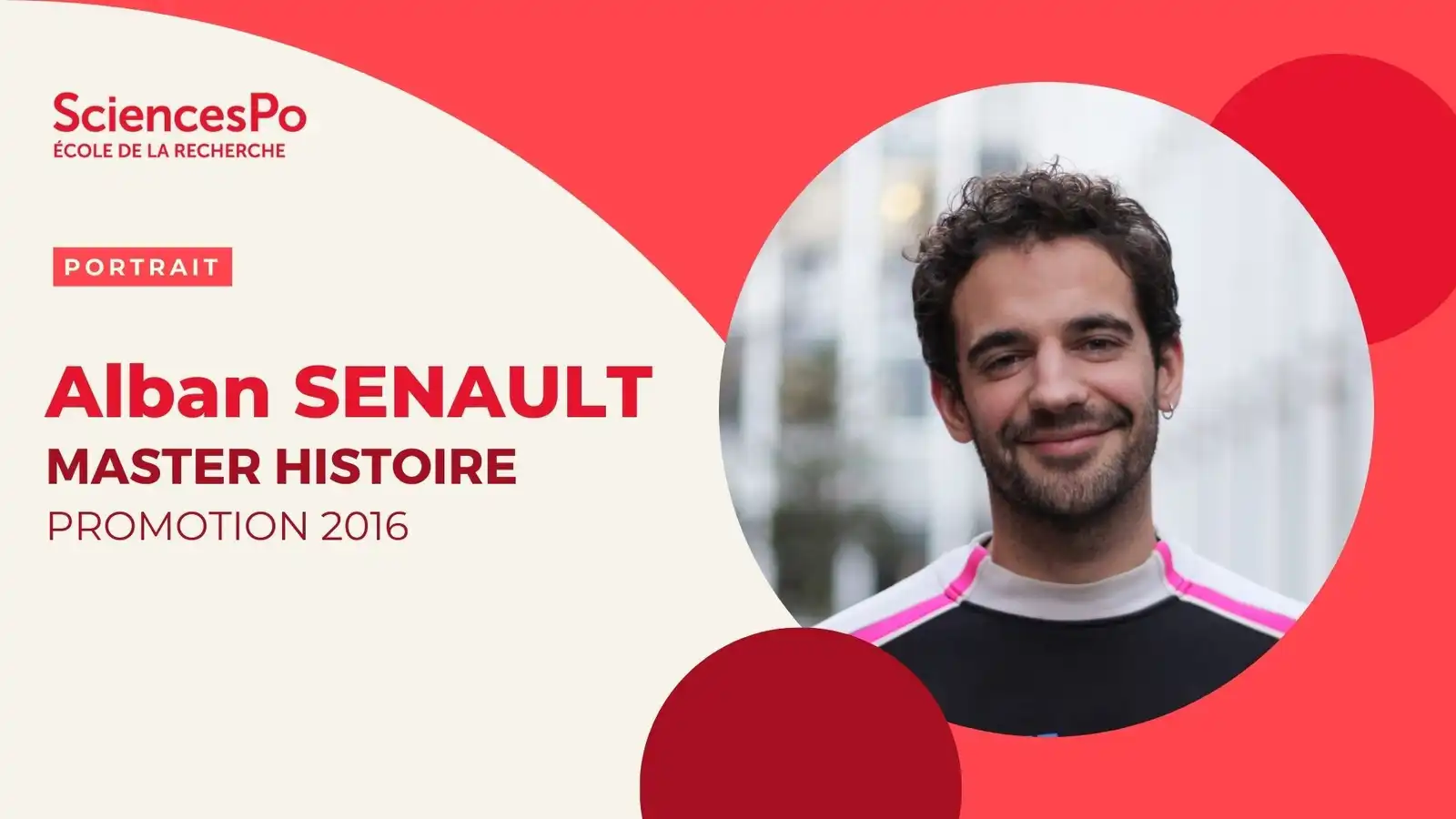Home>Portrait of Alban SENAULT, class of 2016
28.10.2024
Portrait of Alban SENAULT, class of 2016
CAN YOU TELL US ABOUT YOUR ACADEMIC BACKGROUND? HOW DID YOUR INTEREST IN HISTORY BEGIN?
I followed the ‘classic’ Sciences Po bachelor's course: first and second years on the Paris campus, third year at UNICAMP (State University of Campinas) in São Paulo, Brazil, before joining the research master's in history at the school of Research. I focused my Master's research on the urban development of São Paulo, a project I developed thanks to the REFEB (Réseau Français d'Études Brésiliennes) grant from the French Embassy in Brazil, in partnership with FAU-USP (Faculty of Architecture and Urban Planning - University of São Paulo).
WHAT HAVE YOUR YEARS AT THE SCHOOL OF RESEARCH MEANT TO YOU? WHAT MEMORIES DO YOU HAVE OF YOUR SCHOOL, YOUR CLASS AND YOUR TEACHERS?
Even though I quickly realised that I wasn't cut out to go on to do a PhD and do research, I'm pleased to have had the opportunity to follow courses of such a high standard, which enabled me to take an interest in a wide range of subjects. The fact that I was in a relatively small class (around twenty dissertation students) meant that I was able to make contact with everyone and have access to a particularly wide range of subjects.
First and foremost, I have fond memories of my year and continue to keep up to date with my former classmates. It's always a great pleasure to discover that some of them have become experts in their field and are now in demand as speakers on France Culture, for example. In fact, I may be asked to do some of them myself.
WHICH TEACHER OR COURSE OF STUDY HAS HAD THE GREATEST IMPACT ON YOU?
I was particularly impressed byElissa Mailänder's teaching on “Masculinity as an object of gender history” for her innovative approach (at the time anyway) to gender history.
I also really appreciated the political history courses given by Marc Lazar and Gerd-Rainer Horn, and the teaching of Laurence Bertrand-Dorléac, who helped me to transform my research topic into an exhibition (a project that has proved to be vital and very important in my subsequent career).
WHAT IS YOUR CURRENT POSITION?
I'm an independent cultural programmer and producer, with a particular focus on artistic projects between France and Brazil. In practical terms, this means that I design and develop original artistic programmes for cultural venues and festivals: prospecting and choosing artists, building a coherent programme, writing texts, curating, producing, etc.
WHAT WERE THE MAIN STAGES IN THE DEVELOPMENT OF YOUR CAREER PLAN?
I first worked as an assistant to political leaders (first at the Senate, then at Paris City Hall), specifically on cultural issues. I then set up all the artistic, cultural and civic programming for Césure, a huge third-party space housed in the former Paris 3 - Sorbonne-Nouvelle university.
A few months ago I decided to continue this professional adventure on my own.
At the same time, I work as a translator/interpreter for Brazilian politicians and cultural figures (yes, Brazil is everywhere!). I like the fact that I can take an interest in a wide range of subjects without ever being pigeon-holed.
HOW HAS YOUR TRAINING CONTRIBUTED TO YOUR CURRENT POSITION?
My main contribution has been the ability not to focus on a specific, monochrome approach to the subjects I tackle through an artistic lens, but to cross them with a social, sometimes academic, approach, constantly allowing myself to mix artistic approaches and mobilising every possible medium.
The fact that the approach offered by the master's programme is so broad (from Emmanuel Laurentin's cultural journalism courses to Claire Andrieu's oral history courses) has also enabled me to quickly assume my desire to work in a sector where social relations are essential and predominant (and to put aside the research work in the archives).
WOULD YOU HAVE ANY ADVICE FOR A STUDENT WHO WANTS TO MOVE INTO THE SECTOR IN WHICH YOU WORK TODAY?
There is no set path to working in this sector (the proof is in the pudding...). Curiosity - i.e. the ability to take an interest in the world around us without prejudging it - and the ability to listen are essential qualities that can be developed during the master's course in history research at Sciences Po.
Learn more:

